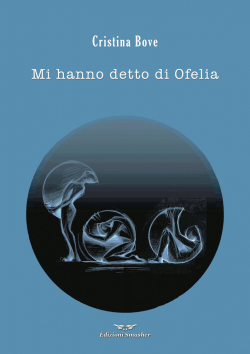Editorial
by Francesca Del Moro
It was (I remember it well) the summer camp
we couldn’t breathe I am sure that
the bus left and then they said goodbye
there was a love story there was a bra
as she unfastened it I remember that
the band was playing and then only darkness...
(Baustelle, “Le vacanze dell’83”)
A vacation, as the word suggests, is a period in which our life is free from work or study commitments – it gets “empty”, though for a short period of time. And we can fill this void with experiences that go beyond the duties that mark our time day after day – cultivating thoughts, rediscovering nature and relationships with people, thoroughly and slowly. Enrico Crucianelli deals with the change of season opening his drawers and his senses to the upcoming summer. His poetry is a lively explosion that hits the difficult target of expressing happiness. Not less joyful is the nursery rhyme by Roberta Lipparini, who, amused and astonished, looks at the marks left on her body by a day of vacation. A day at the seaside is also the protagonist of the nostalgic memory of Kira A. Her verses caress the readers with the slow rhythm of the sea that laps the beach, inviting them to abandon themselves to the words, as she would like to abandon herself to water. A bitter note comes from the poem by Alessandro Dall’Olio, which forces us to open our eyes and see the other side of holidays. The duties that strangle our life often prevent us from hearing its empty rumble and get frightened. And we are horrified by the sight of couples that, having lost all their intimacy and vital force, perform holiday rites like androids.
Summer
by Alessandro Dall’Olio
fiercer than the criminal that deforests
are the fixed affairs
in the mall holding hands in their tracksuit on saturday,
august allinclusive with ankle pants,
spending a lifeless life
with wrists dumbed by stale blood
motionless as in pictures among the beach huts
not a trace of passion under their eyelids
they never come out of the dark woods
of the fixed minds.
And the green beyond the pane is already greener
by Enrico Crucianelli
And the green beyond the pane is already greener
if voices between branches wake me up
and a less angled slash of light
remains imprinted on the fold of
the tangerine-coloured sheets.
I will cast off the itchy wool and the scarfs
reminiscent of cold weather, I will feel the air
on my arms and my legs surprised
by the amount of life coming back to life.
I will need a pair of sunglasses
to go out in the open air on the tepid road,
I will hear the dense buzz of the bees
between lime leaves
that have the flavour of paradise
and translucent yellow-white sweetness.
And I will open my drawers once again
in search for the smell of cotton fabrics
reminiscent of the summer,
I will feel like lying in the sun
and gaze at blue particles
listening to words between gusts of wind,
somebody will say that it is back again
it seems like yesterday when we had our feet
in the water and the marks left by the sun
that lasted almost until Christmas.
Summer journal
by Roberta Lipparini
A bit of water
has remained in my ear
if I shake my head
I feel like a bucket
A slight scratch
above my ankle
when I stumbled
on a shell
Grains of sand
even inside my nose
and between my toes
but I don’t care
My bottom is white
the rest is tanned
I seem to wear a bathing slip
even when I am nacked
I look at my body
and begin to think
that it seems the journal
of a holiday by the sea.
Seatown
by Kira A
I miss the sound of the sea.
When it rests at dawn
in the violet blue of the sky
and
asleep
the waves
dream of the beach.
I miss the sound made by
the sea
in the leaves in via rieti
in their confused
rustling
at times
in despair at times
suffocated.
I miss my steps
on the street towards
home
at 2 o’clock
in the afternoon and
the burningblack
tarmac
so desert
and speechless.
I miss the screams
of children
on the shore
stars and marbles that dart
flicks of colour
freed
stills.
I also miss the embrace
of the lukewarm
water
its kiss on my lips
every sound that is muffled
me motionless
and using all up
caresses on my back
the sinking feet
going down
eyes wide open
the liquefied silence
everything suspended.
Looking at my digital pulps
all the rest effaced
I don’t feel like rising up again.
Mi hanno detto di Ofelia
by Cristina Bove
“You have dreams vertically painted
as the eyes of cats
saddened by living in cages”
(The road to the dock)
“I am no longer sure of my name / and of Ophelia / I have lost every contact” says Hamlet in the poem with the same title of the book, focusing on one of the main themes of this collection: the fear and at the same time the constant attraction towards one’s own and other people’s disappearance. Cristina’s poetry lives on two opposite strains: on the one hand the gracefulness and lightness of the rhythm, reminiscent of ethereal string scores, raise it in the air running the risk of turning it into its denial, the silence which is the protagonist of “Almost_flight” and “Towards silence”. On the other hand, the rhythm itself empties the mind, as in meditation, and prepares it to receive the poetic word in all its density. Her verses aim to endow our daily life with a new impact, deconstructing the continuum of each experience in a series of meaningful details which become hooks that anchor us to reality and prevent us from disappearing. This duality is exemplified by the comparison between two poems: “Thinking over” and “Counterdream”. The former offers one of the many interpretations of unsubstantiality focusing on what could be something and isn’t: a handful of not even sand, unuttered words, footprints deleted before they are printed on the sand, and the thrilling ending: “And yet one can say / to tired people waiting at the door / come in and have a drink / and show an empty bottle”. “Counterdream” gives substance to the phenomenology of the loving wait through a series of images that are astonishing but at the same time so fitting that they seem necessary (the latch a name to turn / her sitting in her body, waiting / he arrived, already known by the air / with the heart ringing /louder than the alarm clock / when it wakes you up). Cristina’s poems are sometimes ironical (e. g. “Little murders”) and her confidence in playing with the language on different levels reminds of the outstanding verses by Pasquale Panella, especially those set to music by Battisti for L’apparenza. Like Panella, she makes us experience situations, thoughts and feelings in a conscious and multi-faceted way, as if they were clues that we need to be sure that we exist.
Cristina Bove
Mi hanno detto di Ofelia
Edizioni Smasher, 2012

